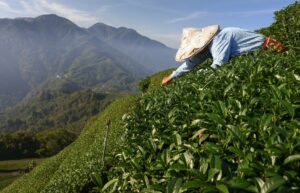Business chamber touts PHL prospects as tea producer

GLOBAL DEMAND and growing health consciousness are expected to support tea production in the Philippines, though a “tea culture” needs to be established before the market takes off, a business chamber official said.
Cecilio K. Pedro, president of the Federation of Filipino Chinese Chambers of Commerce & Industry, Inc. (FFCCCII), said at the Pandesal Forum in Quezon City on Thursday: “There’s a very lucrative and a big market out there in China and all over the world — Korean, Japanese, English people. They love to drink tea because of the health benefits.”
“But we don’t have a tea culture here in the Philippines. Mas mahilig tayo sa coffee (we prefer coffee) … We have to drink something that is beneficial to our body, which is tea,” he added.
Mr. Pedro supports a pilot project to determine the Philippines’ suitability for tea growing, with due consideration for varieties and intended markets.
“The processing should also be in the Cordilleras,” he said.
Citing a study presented by Dominique T. Molintas, a researcher from Benguet State University, FFCCCII Committee Chairman for Government Affairs George Chua Cham said the idle land in the highlands of Luzon would be suitable for tea cultivation.
“After planting for three to five years, you’ll be harvesting for the next 50 or 100 years so it’s good payback,” he said.
Benguet Governor Melchor D. Diclas said the province is open to collaboration with academics and the encouragement of smallholder farmers seeking to engage in tea production but noted the need for investment.
“As much as we would like to have this, of course, we need investment for this tea production. So, we would like to invite anyone who would like to invest and we will help them,” he said.
Bureau of Plant Industry (BPI) Director Gerald Glenn F. Panganiban said that the Department of Agriculture can conduct research into appropriate tea varieties for Philippine growing conditions.
“The BPI has five research centers around the country; we can try varieties needed by the market. Once we find out which variety is needed and appropriate, we can upscale tea farming in selected areas,” he said.
Mr. Panganiban said the Philippines imported about 134 metric tons of tea products from Vietnam and China in the five months to May. — Sheldeen Joy Talavera




